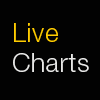Gold Starts the Week $20 Higher
SPOT GOLD PRICES rose sharply at the London opening on Monday, starting the week $20 per ounce above last Monday’s start as crude oil dipped from its new all-time highs.
The US Dollar fell hard on the currency market. The Nikkei share index in Tokyo closed the day more than 2% lower.
“The Gold Market looks bullish on the Dollar and oil,” reckons Narayan Gopalakrishnan, a trader at MKS Finance in Geneva, speaking to Bloomberg today.
“We could see $920, $925 this week.”
Iran’s delegate to the Opec oil cartel yesterday repeated last week’s forecast from Morgan Stanley that crude oil could reach $150 per barrel this summer.
Saudi Arabia’s oil minister, however, told reporters that Friday’s new peak above $139 per barrel is “unjustified”.
On the food markets this morning, corn prices leapt to a new record high as heavy rain continued to flood unplanted fields in the US mid-west.
Soybeans, wheat and rice also rose, as did base metals.
“After the European Central Bank hinted at a rate hike at its next meeting,” notes Manqoba Madinane for Standard Bank today, “we believe the Dollar should remain under pressure in the near term.
As investors “plough funds back into commodities to hedge against erosion in the US currency, this could boost global inflation expectations, which should lend further support to precious metals.”
Short- and medium-term government bond prices fell everywhere early Monday, pushing the two-year US Treasury yield nearly seven basis-points higher to 2.45%.
Longer-dated bond prices rose, however, widening the gap further between short-term and long-dated returns on European and UK government debt.
This “inverted yield curve” – where longer dated bonds pay less than short-term debt – is “often seen as a predictor of an economic downturn,” notes Reuters today, “because it suggests that bond investors believe the central bank…will have to cut rates to revive a slowing economy.”
Over on the forex market today, the Euro leapt to a near-7 week high above $1.5840 on news that Germany’s trade surplus swelled to €18.7 billion in April.
That capped the Gold Price in Euros just below a one-week high of €575 per ounce
The British Pound jumped one cent to a five-session high above $1.9790 after the United Kingdom reported a fresh record in producer input prices, now rising at 28% year-on-year.
US import price data will be released Thursday, along with the latest retail sales numbers. The latest US consumer price inflation data will be released this Friday.
The New York stock markets dropped 3.5% last week after the Labor Dept. said US unemployment rose sharply in May.
“The aggressive financial policies of the biggest economy in the world have led not only to corporate losses; most people on the planet have become poorer,” said Russian president Dmitry Medvedev at the St Petersburg Economic Forum on Saturday.
At the same conference on Sunday, Jim O’Neill – chief economist at Goldman Sachs – said the financial crisis now hitting the United States will allow the world’s fastest-growing economy to claim a bigger share of global wealth.
“On a relative basis it definitely allows the BRICs [meaning Brazil, Russia, India and China] to develop faster as they are going to take an even bigger share of GDP sooner.”
But emerging economies also face the same pressures of “easy money” forcing a bubble in financial assets and mis-investment.
“Policy makers were expecting slower global growth to bring down inflation and do their work for them,” notes Robert Prior Wandesforde at HSBC in Singapore. “That’s not going to happen.
“Monetary policy is incredibly loose, and they have a lot of catching up to do.”
Just as in the United States, interest rates in Thailand are now less than half the rate of consumer-price inflation, currently running at 6.2% per year. In China, the People’s Bank this weekend raised the proportion of cash deposits which private banks must keep back in reserve – hiking the requirement to 17.5%. But its target interest rate also remains below the rate of inflation.
China’s overnight target rate is 7.5%. Consumer prices are rising at a 12-year high of 8.5%.
“In a large slug of the Asian emerging world,” as Alan Ruskin at RBS Greenwich Capital notes to Bloomberg, “monetary policy is just too easy.”
Adrian Ash
BullionVault
Formerly City correspondent for The Daily Reckoning in London and head of editorial at the UK’s leading financial advisory for private investors, Adrian Ash is the editor of Gold News and head of research at BullionVault – where you can Buy Gold Today vaulted in Zurich on $3 spreads and 0.8% dealing fees.
(c) BullionVault 2008
Please Note: This article is to inform your thinking, not lead it. Only you can decide the best place for your money, and any decision you make will put your money at risk. Information or data included here may have already been overtaken by events – and must be verified elsewhere – should you choose to act on it.
About Pete Southern
Pete Southern is an active trader, chartist and writer for market blogs. He is currently technical analysis contributor and admin at this here blog.
Most Popular Content
- Weak Payroll Data Sends Stocks Higher
- Gold Flying and Making New All Time Highs
- Gold Prices Slip Ahead of Anticipated Economic Data
- Oil Prices Surge From Lows Amid Mixed Global Signals
- U.S. Stock Indices: A Dance Between Optimism and Fear
- Gold Prices Dance with CPI Data and the Fed
- Oil Prices Surge Amid Record Demand and Supply Tightening
- Gold Steady As US Dollar Index Tries to Make Gains
Currency Articles - May 22, 2019 15:21 - 0 Comments
The Pound is in Freefall – When Will It Stop?
More In Currency Articles
- GBP Gets Ready for an Unpredictable Day with Meaningful Vote 2
- British Pound Stays Strong Whilst The Dollar Remains Weak
Gold and Oil News - Mar 30, 2024 10:37 - 0 Comments
Gold Flying and Making New All Time Highs
More In Gold and Oil News
- Gold Prices Slip Ahead of Anticipated Economic Data
- Oil Prices Surge From Lows Amid Mixed Global Signals



